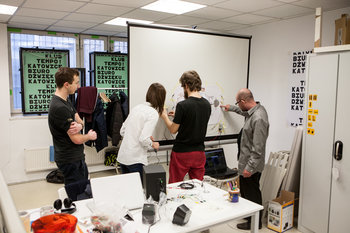
Cause and Effect
All things that happen are a chain of cause and effect such that consequences are a foundational aspect of life. If you stay up too late, you may be tired the next day. Cause and effect can also be quite difficult to determine. For example, did the chair break because you jumped on it or because it was poorly designed?Unintended Consequences
Cause and effect are extremely complex such that it can be difficult to predict the consequences of an action. This is particularly true when you make a change to a complex system such as the environment. Unintended consequences is a term for negative consequences that aren't intended by an action. For example, a farmer who uses a pesticide that harms a beneficial insect that has been eating harmful insects. The art of predicting unintended consequences is known as systems thinking.Natural Consequences
Natural consequences occur when a system or authority allows cause and effect to occur naturally without interfering. For example, a parent who doesn't replace a toy that is broken when a child throws it down the stairs after warnings that this will break it.Logical Consequences
Logical consequences is another term for cause and effect. In the context of parenting or management, this is equivalent to natural consequences. For example, a manager who doesn't step in to help a team member who has picked a political fight with a stronger adversary.No Consequences
A system can protect its members from logical consequences. This can cause problems because it may encourage bad behavior. For example, a parent who pressures a school to give their children a good mark that they don't deserve may encourage their children to cultivate poor study habits.Positive Consequences
Positive consequences are good things that happen due to an action. These include a natural flow of cause and effect that work out positively and systems that reward members for behavior. For example, a parent who lets a child stay up a little later if they do a good job on their homework.Negative Consequences
Negative consequences such as a parent who takes away a video game when a child hits their sibling. These can also be natural consequences such as a child who damages a friendship by hitting others.Loss of Privilege
Loss of privilege is a basic type of negative consequence. Rights and freedoms are things that can't be arbitrarily taken away as a matter of principle. Privileges are advantages and benefits that aren't a right such that they can be easily taken away. For example, a child has a right to play but a specific type of play such as a video game system is more of a privilege.Gamification
Gamification is the use of games in real world situations. Games are commonly based on positive and negative consequences whereby players are constantly rewarded or penalized based on factors such as competition, performance and luck. People tend to like games such that adding game-like dimensions to everyday tasks can increase engagement. For example, a teacher who asks "who can list the most countries in Asia" is essentially making the question a game with a potential for "winning."| Overview: Consequences | ||
Type | ||
Definition | The result of an action. | |
Related Concepts | ||
















